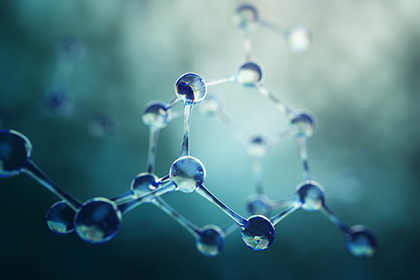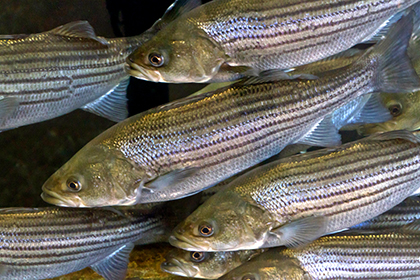
PFAS Research Shared at Federal Workshop Hosted by NIEHS
October 02, 2020
Scientists from NIEHS and the U.S. Environmental Protection Agency (EPA) presented their latest research on per- and polyfluoroalkyl substances, or PFAS, in the second in a series of virtual Federal Information Exchanges Aug. 28.- Science Highlights
- NIEHS Environmental Factor

Virtual Workshop Explores Newest PFAS Research
September 02, 2020
Three NIEHS grantees presented their latest research on per- and polyfluoroalkyl substances, or PFAS, at a July 31 Federal Information Exchange. The online session — attended by more than 260 researchers with federal funding, federal employees, and state health representatives — was the first in a series of virtual workshops.- Science Highlights
- NIEHS Environmental Factor

PFAS Should Be Managed As a Single Class of Chemicals, Experts Say
August 04, 2020
Treating the thousands of potentially toxic chemicals called per- and polyfluoroalkyl substances (PFAS) as a single class could reduce health risks and contamination, and improve clean-up efforts, according to a June 30 commentary by an international group of experts.- Science Highlights
- NIEHS Environmental Factor

Mauge-Lewis Researches Replacement PFAS in Firefighting Foams
May 05, 2020
Chemical mixtures used in firefighting were the focus of a March 30 webinar sponsored by the University of North Carolina at Chapel Hill’s (UNC) graduate toxicology and environmental medicine program.- Science Highlights
- NIEHS Environmental Factor

High Levels of PFAS in Cape Fear River Striped Bass
May 05, 2020
NIEHS grantees found elevated levels of 11 per- and polyfluoroalkyl substances (PFAS) in the blood of Cape Fear River striped bass. The higher levels were associated with markers of altered immune and liver functions in the fish.- Science Highlights
- NIEHS Environmental Factor

NTP-led Team Finds Adverse Effects of PFOA and GenX in Mice
April 01, 2020
In an NIEHS-funded study focusing on the placenta, scientists from the Division of the National Toxicology Program (DNTP), U.S. Environmental Protection Agency, and Duke University collaborated to compare the impact of gestational exposure to environmental contaminants perfluorooctanoic acid (PFOA) and hexafluoropropylene oxide dimer acid, known as GenX, on experimental mice.- Science Highlights
- NIEHS Environmental Factor

GenX Affects Function of Proteins That Protect the Brain
April 01, 2020
NIEHS researchers have found that in rats, exposure to low levels of the chemical GenX may affect the function of certain protective proteins at the blood-brain barrier. This discovery is important because it suggests that GenX — part of the per- and polyfluoroalkyl substances (PFAS) chemical family — can alter how the body safeguards sensitive organs against exposures.- Science Highlights
- NIEHS Environmental Factor

Replacement Chemicals May Put Pregnancies at Risk
February 03, 2020
Exposure to so-called forever chemicals may increase a woman’s risk of pregnancy complications. New research links exposure to per- and polyfluoroalkyl substances (PFAS), which are industrial chemicals found throughout the environment, with an increased risk of a pregnancy complication called preeclampsia.- Science Highlights
- NIEHS Environmental Factor

PFOA Evaluated For Cancer Links by NTP Expert Panel
January 02, 2020
Experts endorsed findings from studies by the National Toxicology Program (NTP) on two chemicals found in everyday items and their links to cancer in rodents. One study focused on perfluorooctanoic acid (PFOA), a substance found in products such as nonstick cookware and stain- and water-resistant fabrics. The other was about oxybenzone, an ultraviolet filter found in sunscreen lotion.- Science Highlights
- NIEHS Environmental Factor

People Who Eat More Meals at Home Have Lower Levels of Harmful PFAS Chemicals in Their Bodies
October 17, 2019
Preparing meals at home can reduce your exposure to harmful PFAS chemicals that are commonly found in take-out and fast food packaging, according to a new study by NIEHS-funded researchers at Silent Spring Institute.- Science Highlights
- Silent Spring Institute

New Research Sheds Light on Metabolic Changes Associated with PFAS Exposure
August 27, 2019
A new study done by NIEHS-funded researchers at Brown University, led by Joseph Braun, finds exposure to PFAS is assoicated with alterations in metabolic pathways related to metabolism in a cohort of children in the Cinncinnati area.- Science Highlights
- NIEHS


